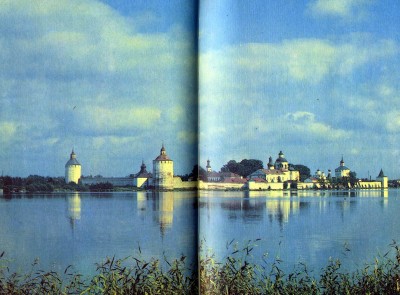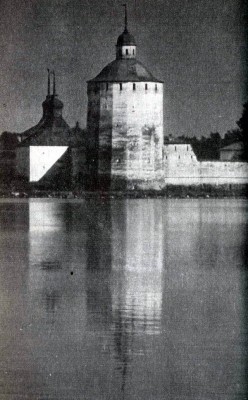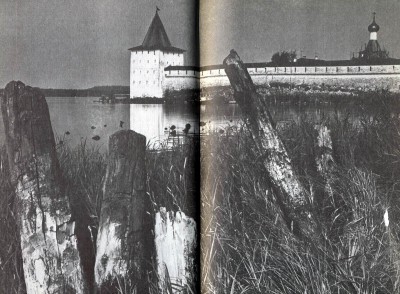Vassian Patrikeyev and the Non-Possessors
Joseph of Volokolamsk and Daniel were opposed by polemicists of a more independent nature. The most talented of the polemicists who opposed the Josephites was undoubtedly Vassian Patrikeyev, a prince who had been forced to become a monk in the White Lake Monastery of St Cyril by Ivan III. At the beginning of the sixteenth century Vassian became the founder of the movement of Non-Possessors, who opposed monasteries owning land. Vassian’s teacher, Nilus of Sora, paid little attention to concrete questions of social organisation. Like Joseph of Volokolamsk, he waged theoretical disputes with heretics, possibly even helped to write The Enlightener, and preached the moral perfectionment of monks. Only toward the end of his life, in 1503, did Nilus indirectly reveal his standpoint on practical questions by supporting Ivan III, when the latter suggested depriving the monasteries of land at church council. Precisely how Nilus justified this support of the prince, we do not know. Unlike his teacher, Vassian was primarily a polemicist and a politician. He wrote a great deal about monastic landowning, arguing that the monasteries should not own “villages with peasants”, but should subsist on state allowance and their own labours.28
Yet Vassian was not a heretic or a supporter of the Reformation. Unlike all the Reformation figures he did not cast doubt on the teaching of the Church Fathers or attack monasticism. On the contrary, he sought to perfect it. Nor did he support religious toleration. He agreed that heretics should be punished. He objected only to the mass reprisals which began to be used after 1504 not only against free-thinkers, but also against their supporters—both real and imaginary. Vassian declared that one could be indulgent towards heretics who repented and opposed capital punishment. Joseph of Volokolamsk argued that for the saints of old it was all the same “if a sinner or heretic were killed with hands or prayer”. To which Vassian replied that Joseph himself did not act like the saints of old: he did not perform miracles or wish to be bound to the stake with heretics and remain unharmed. “We would greet you … as you stepped out of the flames,” he wrote in an ironical epistle to Joseph of Volokolamsk on behalf of the “elders of St Cyril”.
Ridicule was also this prince-monk’s strongest weapon in his polemic against Metropolitan Daniel who had Vassian tried by a church tribunal (as a result of which he was found guilty and subsequently put to death). In reply to Daniel’s accusation that Vassian did not regard Macarius of Kalyazin and other miracle- workers recently canonised by the Church as saints, Patrikeyev remarked with feigned simplicity: “I knew him, a simple man; … but whether he is a miracle-worker or not is for you to decide…” Daniel objected that in that case anyone could be a saint, a tsar or a priest, “a freeman or a bondman”. “That, Sir, only God and you and your miracle-workers know,” replied Vassian with venomous humility.
Irony is not the only feature of Vassian’s polemical writing, however. In disputes with his adversaries he could also be extremely solemn and eloquent, for example, when he was accusing the Possessors of cupidity and of oppressing their “wretched brothers”, the peasants: “The Lord says: ‘Give to the needy’,” wrote Vassian, contrasting this New Testament behest with the behaviour of landowners who extorted more and more interest from the peasants and drove penniless debtors with their wives and children off their land, “after taking their cow and horse from them”.
 History of Russian Literature
History of Russian Literature



